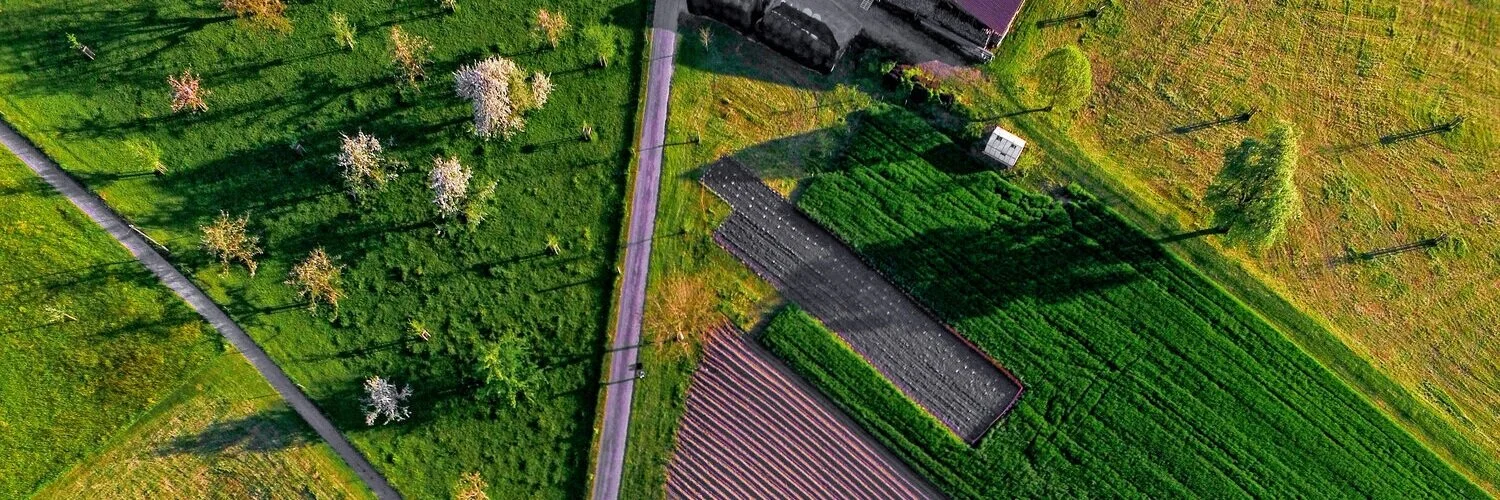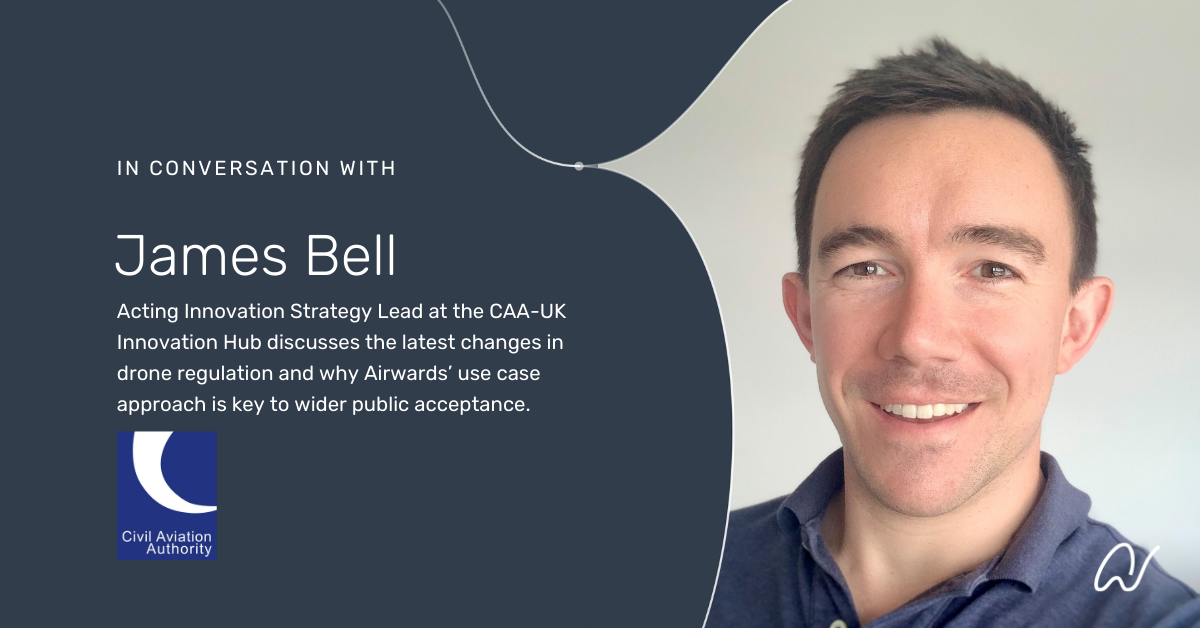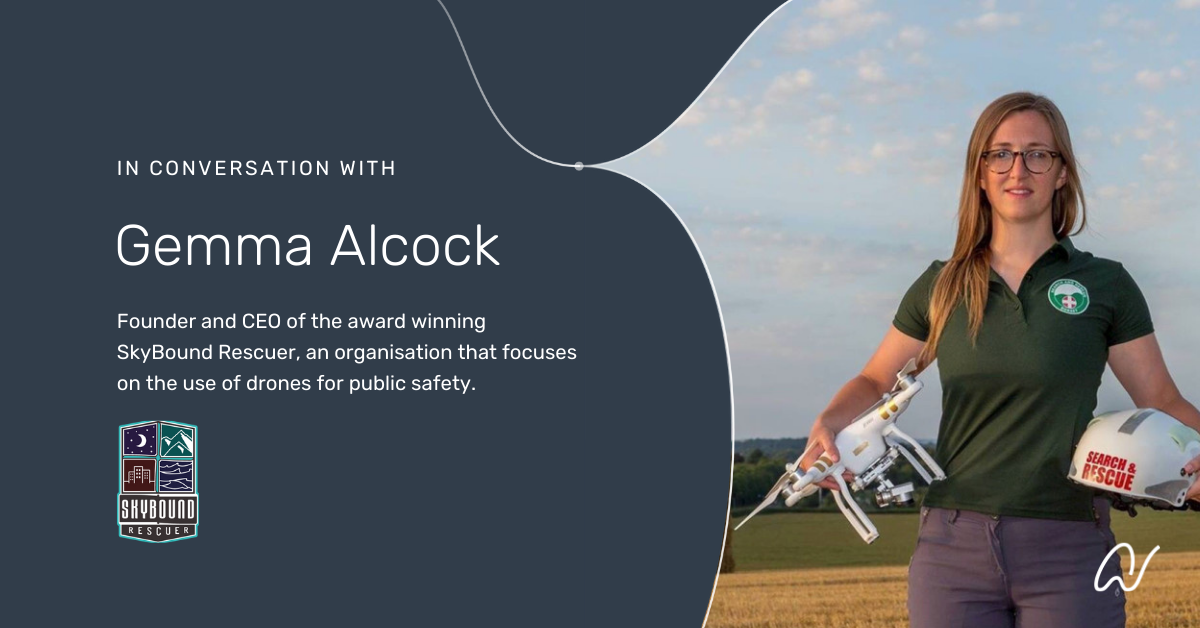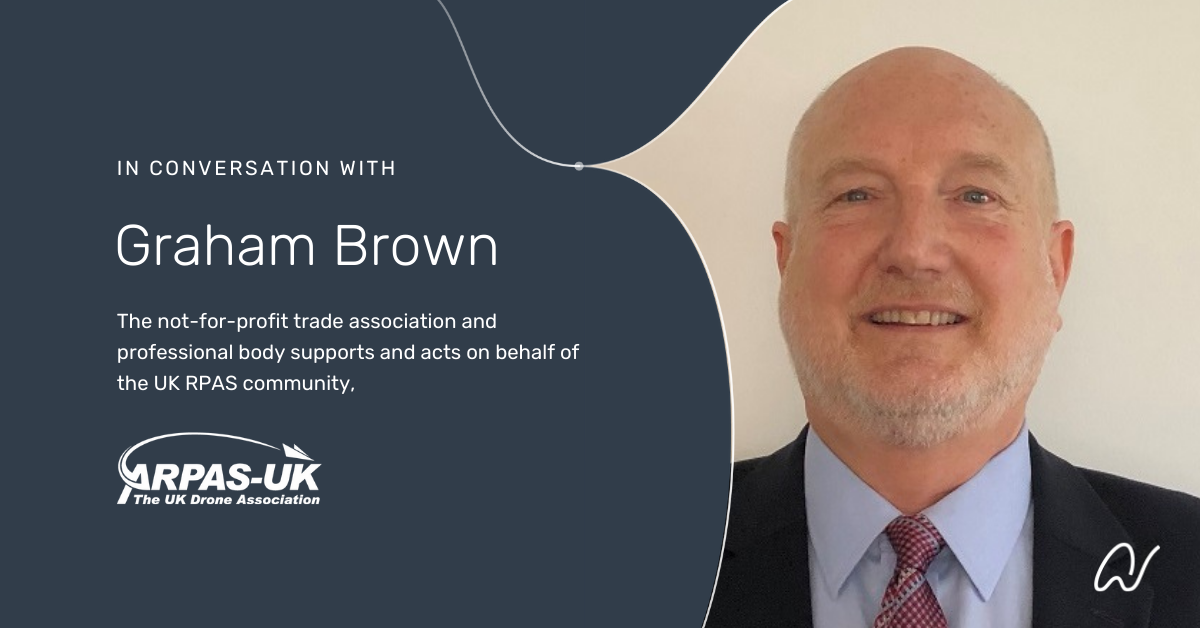In Conversation With
Each week, Airwards chats to someone in the drone industry doing incredible work. We uncover what they do, what makes them tick, where they see the drone industry headed, and discuss positive drone use.
We recently caught up with Claire Owen, Co-Founder of DronePrep. In this blog, Claire shines a light on DronePrep’s recent pioneering projects and achievements, as well as some of its challenges. She also shares advice for responsible drone use and her ultimate vision for our future world with drones.
DronePrep launched earlier this year. Its mission is to unlock suitable locations for drone use in the UK by connecting pilots and landowners. Through its technology and consultancy services, DronePrep provides insight for low-level airspace utilisation and responsible drone use. Airwards is delighted to have DronePrep on as a founding partner as well as judge.
1 | It’s been a big year for DronePrep. What have been some of the highlights?
2020 has been the craziest of years - for a number of reasons. For us at DronePrep, it was the year we officially launched in BETA and started connecting drone pilots and landowners. Subsequently, we’ve been working on the most incredible projects. For example, helping the Isle of Wight transport COVID-19 medical supplies using drones. To top it all off, we were selected for the prestigious BetaDen scale-up accelerator and nominated for our first award for collaboration by PropTech. It’s been quite a few months!
2 | Walk us through your career journey to reach this pivotal point.
I spent a decade as a property consultant, advising clients in the acquisition and disposal of residential property. I became very aware of the feeling of control that comes with property ownership - something that plays heavily into the drone industry. After that, I followed my passion for technology and founded a PropTech startup; I was fascinated by the insights provided by data visualisation. I certainly feel like my career journey has been a collection of skills that has led me to this point!
Likewise, my friendship with DronePrep Co-Founder Gareth Whatmore has been instrumental. I’ve always been passionate about working on products and services that do good in the world. It’s been Gareth’s passion for drones that has opened my eyes to all the good and remarkable capabilities they do.
We’d been working on the concept of DronePrep for a while. Despite the challenges of the pandemic, we felt there was no greater time to step in for action, having spent the previous year validating use cases before launching this summer. We were overwhelmed when over 200 pilots signed up within a few days to test DronePrep’s BETA stage.
3 | What challenges do you encounter with DronePrep?
We started out with a very simple premise: answering the question, “Where can I fly my drone?”. To begin with, engaging with landowners was pretty tricky as we looked for a solution. Many landowners were simply not aware of the positive uses of drones, and thought they were just toys. Once they realised they could be helping R&D testing, as well as potentially making some money, perceptions started to change. As part technology and part consultancy, DronePrep sits very much in the middle of landowners and pilots. We’re hoping we’re in the perfect position to bring everyone together with our unique database which takes into consideration all factors in low level airspace.
Outside of the industry, I come up against challenges with drones all the time. I might be talking to a friend whose view is that drones are annoying and here to spy on us. When I’ve then convinced them otherwise (I usually use the brilliant use case of the thermal image technology used to monitor and treat the Notre Dame fire), they’re then disappointed to learn they can’t just buy a drone and fly it in the park without registration and education on the drone code including landowner permission. Again, there’s such an awareness and education piece needed on the safe and responsible usage of drones.
4 | What advice would you give to companies wanting to be more responsible with drones?
There’s no clear answer on who owns the air, even from the CAA. As a landowner, you own the space on the ground, so naturally you feel you own the air above it. While the jury is still out, judgements from test cases have swung in both favours. Ultimately, as a landowner, drones flying above your land - without permission - will annoy you, and there are also potential liabilities. So my advice to drone users would be to always seek out permission before flying a drone. It’s the responsible thing to do. Moreover, if landowners are willing to give permission, it’ll mean a more comfortable drone experience all round. And if a location is not yet on a map, DronePrep can help broker the landowner permission.
5 | Is there a DronePrep project that you’re particularly proud of?
When the world went into lockdown, we spent the time looking at areas that we knew would be particularly impacted. That is to say, remote islands, cut off from the mainland - where we knew drones could provide solutions. Following a successful Innovate UK funding application we are now leading a consortia to deliver medical supplies by drone between mainland Cornwall and the Isles of Scilly. This small population has been incredibly disconnected due to Covid-19 - especially in cases of bad foggy weather.
This year has been terrible in so many ways, but one positive has been the accelerated drone use cases for NHS medical deliveries. It’s totally changed the industry. Drones are proving to be a useful, supplementary service that can step in and help during difficult times. Further, newspapers have begun to cover drones for good more regularly, and projects are being funded. It’s a huge time for change, which can only be a good thing.
6 | What other projects have you noticed making waves in the industry?
So many... Deliveries for the NHS have to be up there, like Skyports, Windracers and Apian. Zipline drones are a very different concept which works beautifully (they provide vital, on-demand delivery for the world). And then there’s the likes of Gemma Alcock’s SkyBound Rescuer, which specialises in the use of drones for public safety which is inspiring, much like Charles Werner’s DRONERESPONDERS.
Further, more and more police forces are adopting drones within their work. All of these examples will help public acceptance. If you’re not used to seeing a drone, the automatic response will be negative as you battle the unknown feeling. As soon as you understand it’s flying a defibrillator or helping a police emergency, you feel very differently.
Finally I have to mention DronePrep Pilot in Residence, Chris Gorman. Chris captured the most incredible footage of the UK during lockdown and was featured on BBC Breakfast, which was fantastic for public perception.
7 | What are your thoughts on Airwards?
I think it’s a brilliant concept - so much so, I’m surprised it hasn’t been done sooner! The industry is very collaborative but it isn’t always good at showing off its groundbreaking work. I’m really excited by Airwards’ prospect of changing the public perception of drones. Wider acceptance is a really big hurdle to overcome and it’s going to take time. We need multiple projects proving drone use cases. Technology also needs to improve, as does UTM (Unmanned Aircraft System Traffic Management). Once airspace is managed in the right way, the public will be more accepting. But before that, I’m so pleased Airwards is here to pave the way for that.
8 | What do you see for the future of drones?
It’s a big question! At DronePrep, we like to imagine a future where much of life’s ground-based logistics happen above. Where would it leave us if the space beneath our feet was freed up? We truly believe cities could be greener, cleaner, happier and healthier places to live. We’d also see a significant improvement on quality of life and much-improved emergency response times. Instead of taking over jobs, drones would be saving lives, providing supplementary and hugely beneficial services – all within expertly managed, safe low and high level airspace.
About Claire
Claire is an experienced technology entrepreneur. She founded Loop Software in 2017, a data-driven CRM and market intelligence web application, and in early 2020 she co-founded and launched DronePrep. Claire has both extensive property experience with a large network of landowners and land agents. She also has a solid technical understanding of development skills and a passion for data, and the business value that can be derived from both data analysis and data analytics.
Connect with Claire on LinkedIn and visit DronePrep for more information.
















